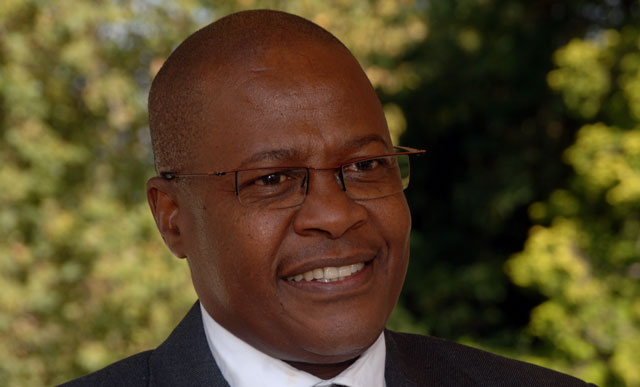
In the first two weeks of his appointment, some questionable public statements made by Eskom’s new acting CEO Brian Molefe makes one wonder whether he is receiving sound information from his executive team. Public enterprises Lynne Brown seems to have had similar problems.
After a presentation to the public enterprises parliamentary portfolio committee, and a media briefing thereafter that reeked of unfounded confidence and hubris, Molefe suggested that the solution to Eskom’s financial woes would be to bypass municipal electricity distributors and supply all customers with electricity in South Africa — domestic, commercial, agricultural and industrial — directly, thus extending its monopoly.
Local government, in the form of municipalities, have the constitutional right to distribute electricity. Like Eskom distribution, they purchase electricity in bulk from Eskom, operate a distribution network, and deliver electricity to residents and businesses embedded in their geographic service areas. Municipalities use surpluses from this activity to cross-subsidise and fund their other municipal service delivery obligations.
While the problems of some 20 defaulting municipalities out of a total of some 180 has been well publicised, it must certainly be galling to the significant majority of municipal electricity distributors to hear that the failing Eskom wants to bypass them all in order to use their surpluses to sort out its own financial problems.
This especially as Eskom’s own performance in distributing electricity direct to domestic and commercial businesses in areas such as Soweto is among the very worst of them all, with theft and non-payment amounting to some 83% of electricity supplied direct to the residents and commercial businesses in Soweto by Eskom. Indeed, with no end in sight, Eskom’s own theft and non-payment financial problem in Soweto alone is bigger than its non-payment problem with all 20 defaulting municipalities combined.
Molefe went on further to suggest that all Eskom customers, large and small, that currently have credit meters, and pay for electricity monthly on a 30-day credit account, should be required to change to prepayment meters. His rationale was that this would quickly resolve Eskom’s cash-flow crisis by bringing forward some two months’ revenue, amounting to about R20bn, into Eskom’s depleted coffers.
Is it conceivable that Molefe and his executives are unaware that Eskom’s existing domestic, commercial, agricultural and industrial customers have to make a prepaid deposit amounting to three months’ electricity usage before opening a 30-day credit account? As such, electricity customers on credit meters effectively prepay even more than customers on prepayment meters, who do not pay this three-month deposit.
This means that if all credit customers were to change to prepayment meters as suggested by Molefe, the three-month prepaid deposits for credit customers would presumably have to be refunded, which would mean that Eskom’s cash flow crisis may in fact worsen rather than improve.

Finally, Molefe appears to have been led to believe that prepayment meters are somehow a panacea for all the revenue protection and collection problems experienced by Eskom Distribution and municipal electricity distributors.
This is strange, because prepayment meters were pioneered by Eskom itself in the early 1990s, and have been around for decades, alongside credit meters. Strange, too, because Eskom’s long experience with both prepayment and credit meters shows that there are areas with prepayment meters having good levels of non-technical losses, and other with poor levels. The same applies to areas with credit meters.
Thus it is clear that successful revenue protection and collection are not simply a choice of meter technology, but a holistic approach where both prepayment and credit meters, and a whole range of good management, performance monitoring, credit control and enforcement practices form part of the solution.
A number of regulated tariff options, including those involving both prepayment and credit meters, are currently available and approved by energy regulator Nersa, and it would certainly not be left to Eskom’s whim or discretion to force a credit customer onto a prepayment tariff without good reason, simply to suit Eskom’s financial needs.
After neglecting the theft and non-payment of electricity in Soweto and other problematic areas for decades, there is simply no quick fix as Molefe seems to believe. The solutions will require a long haul, with commitment and support from national and local government politicians, the cabinet, relevant government departments, Nersa, Eskom, municipalities, the police, courts and correctional services.
- Chris Yelland is the investigative editor of EE Publishers
- This piece was first published on Moneyweb and is republished here with permission

